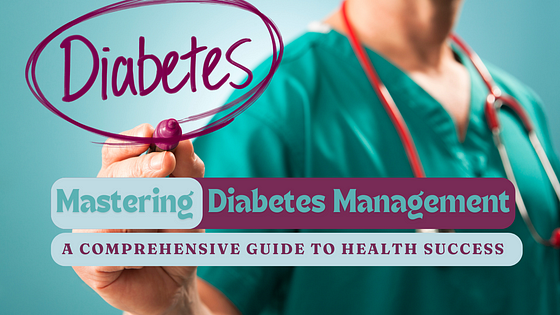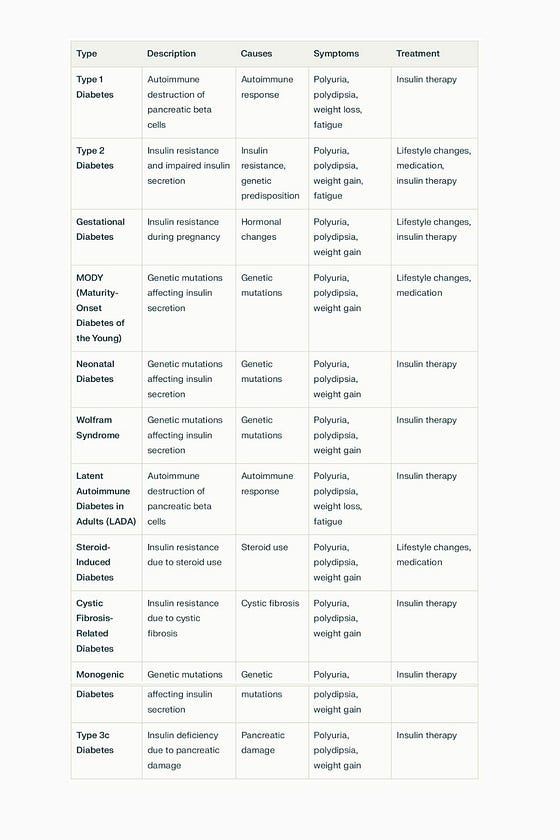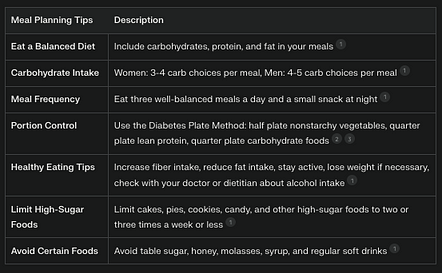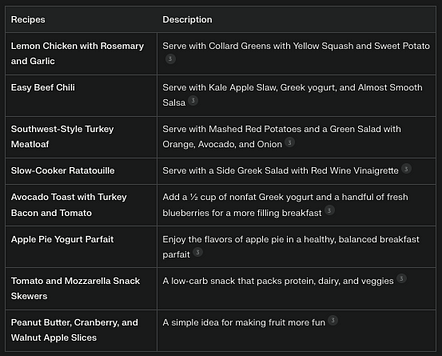
What is Diabetes, Based on the last search ?
Diabetes is a chronic metabolic disease characterized by elevated levels of blood glucose, which can lead to serious damage to various organs over time. The most common forms of diabetes are type 1 and type 2, with type 2 being the most prevalent, affecting approximately 90% to 95% of all diabetes cases.
Type 1 diabetes is an autoimmune condition where the pancreas produces little or no insulin, while type 2 diabetes is caused by insulin resistance, where the body’s cells become less responsive to insulin, or by the pancreas not producing enough insulin.
🌟 Take control of your health journey with our Ready Diabetes Logbook Planner!
Diabetes can cause a range of symptoms, including increased thirst and urination, fatigue, blurred vision, and unexplained weight loss. If left untreated, high blood glucose levels can lead to severe complications such as heart disease, nerve damage, and eye issues.
Effective management of diabetes involves a combination of lifestyle changes, including a healthy diet and regular physical activity, as well as medication and insulin therapy if necessary. Early diagnosis and treatment are crucial to prevent or delay the onset of complications and to improve quality of life for individuals living with diabetes.
Diabetes Types Demystified: Know Your Condition
Here you are a comprehensive table summarizing the various types of diabetes just for making it easy for you knowing your Diabetes type right, This table provides a comprehensive overview of the various types of diabetes, including their causes, symptoms, and treatment options, Check it out:

📚 Ready to conquer diabetes? Start tracking with our Logbook Planner!
Blood Sugar Basics: Understanding Glucose Levels
Blood sugar, also known as blood glucose, is the main sugar found in the bloodstream and serves as the body’s primary source of energy. It is derived from the food we consume, which is broken down into glucose and released into the bloodstream.
When blood glucose levels rise, the pancreas releases insulin, a hormone that helps glucose enter the body’s cells to be used for energy.
Maintaining healthy blood glucose levels is crucial, especially for individuals with diabetes. Normal blood glucose levels typically range from 70 to 99 mg/dL when fasting and less than 140 mg/dL two hours after a meal.
Prediabetes is diagnosed when blood glucose levels are between 100 and 125 mg/dL, and diabetes is diagnosed when levels are 126 mg/dL or higher. Blood glucose levels can be checked using a blood glucose monitor, where an individual pricks their finger, or with a continuous glucose monitor (CGM), which measures glucose levels every few minutes.
🌟 Start your journey to better health today — track with our Logbook Planner!
The Importance of Monitoring: Mastering Blood Sugar Tracking
Monitoring blood sugar levels is crucial for effectively managing diabetes and preventing complications. Here are the key points on the importance of blood sugar monitoring:
- Tracking Patterns and Trends
Regular blood sugar monitoring allows you to identify patterns and trends in your levels, such as how they respond to different foods, activities, and medications. This information empowers you to make informed decisions about your diabetes management plan and make necessary adjustments to maintain healthy blood sugar levels.
- Preventing Complications
Maintaining blood sugar levels within the target range helps delay or prevent serious complications of diabetes, such as heart disease, stroke, kidney disease, blindness, and amputation. Monitoring helps you stay on track and catch any issues early before they escalate.
- Adjusting Treatment
Blood sugar monitoring provides valuable data to you and your healthcare team to determine if your current treatment plan is working effectively or if adjustments are needed. This may include changes to your diet, exercise routine, medication dosages, or insulin therapy.
- Detecting Hypoglycemia
For individuals taking insulin or certain oral medications, monitoring helps detect low blood sugar levels (hypoglycemia), which can be dangerous if left untreated. Catching hypoglycemia early allows you to take prompt action to raise your blood sugar.
- Providing Peace of Mind
Regularly checking your blood sugar can provide reassurance and peace of mind, especially for those with type 1 diabetes or those using insulin. Monitoring helps you feel more in control of your health and diabetes management.
So, blood sugar monitoring is an essential tool for managing diabetes effectively, preventing complications, and improving overall health and quality of life. Work closely with your healthcare team to determine the best monitoring plan for your individual needs and goals.
💡 Discover the keys to mastering diabetes management with our Logbook Planner!
Nutrition essentials for blood sugar management and building a healthy diet plan
- Understand Blood Glucose:
Blood sugar levels are influenced by the carbohydrates and sugars in the diet, which are converted into glucose in the digestive system. Insulin, a hormone produced in the pancreas, helps cells take up glucose from the blood, regulating blood sugar levels. In Type 2 diabetes, issues like insulin resistance and decreased insulin production can lead to high blood glucose levels.
Tips for Success:
To manage blood sugar effectively, it is essential to focus on key aspects such as eating smart, moving more, managing weight, and avoiding nicotine. A healthy diet should include vegetables, fruits, whole grains, beans, legumes, nuts, plant-based proteins, and lean animal proteins like fish and seafood.
Limiting sugary foods, processed meats, refined carbohydrates, and highly processed foods is crucial. Physical activity, weight management, and avoiding tobacco products are also vital components of a successful blood sugar management plan.
By incorporating these principles into your diet and lifestyle, you can effectively manage blood sugar levels, reduce the risk of complications, and improve overall health and well-being.
🚪 Open the door to a healthier life with our Ready Diabetes Logbook Planner.
key tips for integrating physical activity into your daily routine as a person with diabetes
- Start Slowly and Build Up
If you’re new to exercise, start with just 5–10 minutes per day and gradually increase the duration and intensity over time. Aim for at least 150 minutes per week of moderate-intensity aerobic activity like brisk walking, swimming, or cycling.
- Mix It Up
Incorporate a variety of activities to keep things interesting and target different muscle groups. In addition to aerobic exercise, include resistance training at least 2–3 times per week using bodyweight, resistance bands, or weights.
- Make It Fun
Choose activities you enjoy so you’ll stick with it. Dancing, gardening, and even cleaning can count towards your activity minutes. Invite friends or family to join you for added motivation and social connection.
- Manage Blood Sugar
Check your blood sugar before, during, and after exercise to see how your body responds. Have a plan to treat low blood sugar if it occurs, such as keeping fast-acting carbs on hand. Your healthcare team may need to adjust your insulin or medication doses.
- Stay Hydrated
Drink plenty of water before, during, and after exercise to prevent dehydration. Fluids are especially important during prolonged activity or in hot weather.
- Fuel Smart
Have a small carb and protein snack 30–60 minutes before exercise to provide steady energy. If exercising for more than an hour, have additional carbs during your workout. Refuel with a mix of carbs and protein after your activity.
- Listen to Your Body
Stop exercising if you feel pain, pressure, tightness in your chest, or dizziness. Wear proper footwear and check your feet for blisters or sores after activity, especially if you have neuropathy.
- Celebrate Small Wins
Recognize and reward yourself for any increase in physical activity, no matter how small. Over time, these small changes can lead to big improvements in your health and diabetes management.
By making physical activity a regular part of your lifestyle, you can improve blood sugar control, reduce cardiovascular risk, and enhance your overall health and well-being. Consult with your healthcare team to develop an exercise plan tailored to your individual needs and goals.
🚀 Elevate your diabetes care with our Ready Diabetes Logbook Planner!
Practical Strategies: Meal Planning Made Easy: Recipes and Tips for person with diabetes
Here is a two tables summarizing meal planning tips and recipes for a person with diabetes:

Now Here you are the recipes table for person with diabetes:

Medication Management: Navigating a diabetes treatment plan
Navigating a diabetes treatment plan involves a comprehensive approach that includes medication management, lifestyle adjustments, and monitoring of complications.
The primary goal of diabetes treatment is to maintain blood glucose levels within a safe range and reduce the risk of complications. Type 1 diabetes is typically managed with insulin therapy, while type 2 diabetes treatment may involve a combination of lifestyle adjustments, oral medications like metformin, and in some cases, insulin therapy.
Innovative treatments, such as bariatric surgery and artificial pancreas systems, are also emerging options for individuals with obesity and type 2 diabetes to achieve target blood sugar levels.
Bariatric surgery aids in weight loss, while artificial pancreas systems automate glucose monitoring and insulin delivery. Various medication options are available for managing diabetes, including metformin, alpha-glucosidase inhibitors, bile acid sequestrants, DPP-4 inhibitors, and GLP-1 receptor agonists.
📖 Learn, track, succeed! Grab your copy of our Logbook Planner today.
These medications help control blood sugar levels and reduce the risk of complications. The right medication for an individual is one that they can take regularly, with minimal side effects, and that effectively reduces blood sugar levels and complications.
It is crucial to communicate any challenges with medication adherence to healthcare providers for appropriate support and guidance. Safety, tolerability, effectiveness, price, and simplicity are key factors to consider when selecting diabetes medications.
Understanding the benefits and potential risks of each medication class is essential for making informed treatment decisions. By navigating a personalized diabetes treatment plan that incorporates medication management, individuals with diabetes can effectively manage their condition and reduce the risk of complications.
Consulting with healthcare providers, including primary care physicians, endocrinologists, and pharmacists, is crucial for selecting the most appropriate treatment approach.
key stress management techniques to promote emotional well-being for people with diabetes
Here are some key stress management techniques to promote emotional well-being for people with diabetes:
Relaxation Practices
- Practice deep breathing exercises, progressive muscle relaxation, and meditation to calm the mind and body
- Try yoga, tai chi, or other mind-body activities that combine movement with breath and focus
- Listen to soothing music or engage in hobbies you enjoy to help you relax and forget about stressors for a while
Cognitive Strategies
- Challenge negative or irrational thoughts and reframe them in a more positive light
- Practice mindfulness by staying present and aware in the moment, rather than worrying about the future
- Set realistic expectations and don’t be too hard on yourself
Lifestyle Modifications
- Engage in regular physical activity like brisk walking, swimming, or cycling to release endorphins and relieve stress
- Maintain a healthy sleep schedule, as lack of sleep can worsen stress and blood sugar control
- Eat a balanced diet and avoid using food, especially sugary or carb-rich items, as a coping mechanism for stress
Social Support
- Communicate openly with loved ones about your feelings and diabetes-related stress
- Join a diabetes support group to connect with others who understand what you’re going through
- Seek professional counseling if needed to develop healthy coping strategies
Prioritize Self-Care
- Make time for relaxation and enjoyable activities every day, even if it’s just 10–15 minutes
- Practice self-compassion and celebrate small successes in managing your diabetes
- Develop a plan to manage your diabetes that includes monitoring blood sugar, taking medications, and making healthy lifestyle choices
By incorporating these stress management techniques into your daily routine, you can improve your emotional well-being, better manage your diabetes, and reduce the risk of complications. Consult with your healthcare team for personalized guidance on stress reduction strategies.
🌿 Empower yourself with our Ready Diabetes Logbook Planner — start tracking now!
Sleep and Diabetes: Importance and Strategies for Quality Rest
Sleep plays a crucial role in diabetes management, as inadequate or poor-quality sleep can have a significant impact on blood sugar levels and overall health for individuals with diabetes.
Research has shown that insufficient sleep is associated with higher A1c levels, increased insulin resistance, greater hunger and carb cravings, weight gain, and lower quality of life.
Studies have also highlighted the direct and indirect effects of sleep on next-day blood sugar levels, emphasizing the importance of prioritizing adequate sleep to support optimal diabetes control.
By getting at least 7 hours of quality sleep per night, individuals with diabetes can experience more stable blood glucose levels, reduced insulin needs, increased energy levels, improved mood, and better decision-making regarding diabetes management and lifestyle choices.
Effective strategies for improving sleep quality in individuals with diabetes include maintaining a consistent bedtime routine, practicing good sleep hygiene, managing stress levels, and addressing any underlying sleep disorders like sleep apnea.
Creating a relaxing sleep environment, avoiding stimulating activities before bed, and establishing a regular sleep schedule can all contribute to better sleep quality.
Additionally, monitoring blood sugar levels before bedtime and optimizing blood sugar management throughout the day can help promote restful sleep and overall well-being.
By recognizing the critical link between sleep and diabetes control and implementing strategies to enhance sleep quality, individuals with diabetes can better manage their condition and improve their overall health outcomes.
🎯 Ready to thrive with diabetes? Start tracking your progress with our Planner!
Key strategies for building a strong social support network as a person with diabetes
Here are some key strategies for building a strong social support network as a person with diabetes:
Communicate Openly
- Share your diabetes diagnosis and experiences with close friends and family
Be open about your needs, such as help with daily tasks, emotional support, or advice
- Educate loved ones about diabetes to help them better understand and support you
Expand Your Network
- Join a diabetes support group to connect with others who understand what you’re going through
Participate in community activities, volunteer work, or religious organizations to expand your social tiesMaintain relationships with acquaintances and weak ties, as they can provide a sense of belonging and social identity
Nurture Relationships
- Make time for social activities and quality time with loved ones
- Be there for others when they need support, as reciprocal relationships are key to a strong network
- Address conflicts and maintain healthy boundaries in relationships
Seek Professional Support
- Consider counseling or therapy if you are struggling with diabetes-related distress or mental health issues
- Work with a social worker or case manager to help access community resources and support services
Prioritize Self-Care
- Engage in stress management techniques like deep breathing, meditation, or yoga to improve your overall well-being
- Maintain a healthy lifestyle with regular exercise, a balanced diet, and adequate sleep to better manage your diabetes
- Celebrate small successes in your diabetes management and self-care efforts
By building a strong, diverse social support network and prioritizing your overall well-being, you can better cope with the challenges of living with diabetes and improve your quality of life. Remember, seeking support is a sign of strength, not weakness.
💪 Arm yourself with strategies for success — use our Logbook Planner today!
Overcoming Challenges: Dealing with Diabetes Burnout
Diabetes burnout is a common experience characterized by feelings of frustration, exhaustion, and a lack of motivation to manage the condition effectively.
To overcome these challenges, it’s important to identify the triggers, such as daily management tasks and psychological factors like fear of complications and unrealistic expectations.
Building a strong support network, setting realistic goals, and prioritizing self-care through regular exercise, balanced meals, adequate sleep, and relaxation activities can help manage burnout.
Seeking professional help from mental health professionals trained in chronic illness management can provide valuable guidance and evidence-based strategies for coping with the emotional toll of diabetes.
Remember, diabetes management is a journey with ups and downs, and it’s okay to ask for help when needed.
🏆 Unlock the path to better health with our Ready Diabetes Logbook Planner!
Traveling with Diabetes: Tips for Safe and Enjoyable Trips
Traveling with diabetes requires careful planning and preparation to ensure a safe and enjoyable trip. It is essential to pack more than enough medication and supplies, including insulin, in your hand luggage to avoid issues related to lost or delayed checked-in baggage.
Additionally, having snacks with fast-acting carbohydrates readily available can help prevent and manage episodes of low blood glucose during the trip.
Planning ahead, maintaining a regular routine as much as possible, and being mindful of dietary needs and potential challenges while traveling can help individuals with diabetes navigate their trips with confidence and peace of mind, ensuring a positive travel experience.
📝 Ready to take the next step in your diabetes journey? Start tracking here!
Celebrating Victories: Recognizing Progress and Achievements as a person with diabetes
Recognizing progress and achievements is vital for individuals with diabetes to maintain motivation and resilience in managing their condition.Celebrating victories, whether big or small, can provide a sense of accomplishment and reinforce positive behaviors.
By acknowledging milestones like improved blood sugar control, consistent medication adherence, reaching personal health goals, or successfully navigating challenging situations, individuals with diabetes can boost their confidence, stay motivated, and cultivate a positive mindset towards their diabetes management journey.
Taking time to celebrate these victories not only acknowledges hard work and dedication but also serves as a reminder of the progress made, fostering a sense of empowerment and well-being in the face of the daily challenges of living with diabetes.
⏳ Don’t wait to transform your health — start tracking with our Planner now!
Comprehensive Diabetes Management Strategies for Optimal Health
Diabetes management is a multifaceted approach that encompasses various aspects of care to ensure optimal health outcomes for individuals living with diabetes.
From monitoring blood glucose levels through continuous glucose monitoring (CGM) to implementing personalized insulin protocols tailored to individual needs, the management of diabetes requires a comprehensive strategy.
Certified Diabetes Educators (CDEs) play a crucial role in educating patients on self-management techniques, including proper insulin use and carbohydrate counting.
Additionally, the use of advanced technologies like insulin pump therapy and real-time glucose monitoring devices empowers individuals to take control of their diabetes and achieve glycemic control.
By focusing on glycemic control, early detection of complications such as diabetic retinopathy and nephropathy can be achieved, leading to better long-term outcomes and improved quality of life.
Diabetes management also involves lifestyle modifications such as following a balanced diet rich in low glycemic index foods and engaging in regular physical activity to help regulate blood sugar levels.
Medication management, including the use of oral antidiabetic agents and insulin therapy, is essential in achieving target HbA1c levels and preventing complications.
Collaborating with a diabetes care team, which may include endocrinologists, dietitians, and ophthalmologists, ensures a holistic approach to diabetes care.
By adhering to a personalized diabetes management plan that includes regular monitoring, education, and support, individuals can effectively navigate the complexities of diabetes and lead a fulfilling life while minimizing the risk of long-term complications.
Embracing a proactive approach to diabetes management not only improves health outcomes but also empowers individuals to live well with diabetes.
📈 Ready to see real progress in managing your diabetes? Start tracking today!
Bottom Line
Individuals seeking continued support and learning about diabetes management can explore a range of educational resources and materials.
The book “Life With Diabetes: A Series of Teaching Outlines” by Martha M. Funnell offers a structured approach to understanding diabetes, making decisions, and living well with the condition.
Additionally, the book “Mastering Diabetes: The Revolutionary Method to Reverse Insulin Resistance” by Cyrus Khambatta and Robby Barbaro provides insights into reversing insulin resistance through a plant-based diet, offering practical guidance for managing diabetes effectively.
These resources, along with ongoing diabetes education programs, support materials, and publications available through organizations like the American Diabetes Association and the Association of Diabetes Care & Education Specialists, can serve as valuable tools for individuals looking to enhance their knowledge, skills, and self-management strategies in diabetes care.
🗝️ Unlock the secrets to effective diabetes management with our Logbook Planner.
Disclaimer
This guide has been created in partnership with a group of medical students. It is intended for informational purposes only and should not be considered medical advice. The information provided in this guide is based on research and expert knowledge, but individual circumstances may vary.
Please consult with a qualified healthcare professional before making any changes to your diabetes management plan or starting any new treatment regimen.
Furthermore, we kindly request that this guide to be shared on social media platforms. We appreciate your cooperation in respecting this request.
Keywords: